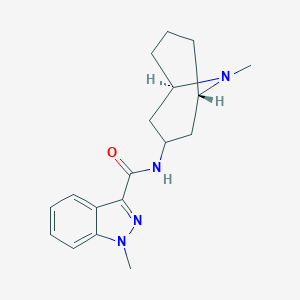Treatment and prophylaxis of postoperative nausea and vomiting
Adult: 1 mg over 30 sec, to be given before induction of anaesth. May be repeated up to max of 3 mg in 24 hr.
Intravenous
Nausea and vomiting associated with cancer chemotherapy
Adult: 1-3 mg 5 min prior to start of chemotherapy, by infusion over 5 min or by bolus inj over at least 30 sec. Further doses may be given at least 10 min apart. Max: 9 mg daily.
Child: 2-16 yr 10-40 mcg/kg (max: 3,000 mcg) by infusion over 5 min to be given prior to start of chemotherapy. An additional dose may be given w/in 24 hr, at least 10 min after the 1st infusion.
Child: 2-16 yr 10-40 mcg/kg (max: 3,000 mcg) by infusion over 5 min to be given prior to start of chemotherapy. An additional dose may be given w/in 24 hr, at least 10 min after the 1st infusion.
Intravenous
Prophylaxis of nausea and vomiting associated with radiation therapy
Adult: 1-3 mg 5 min prior to start of radiotherapy, by infusion over 5 min or by bolus inj over at least 30 sec. Further doses may be given at least 10 min apart. Max: 9 mg daily.
Oral
Nausea and vomiting associated with cancer chemotherapy
Adult: 1-2 mg w/in 1 hr prior to start of chemotherapy, then 2 mg daily as a single or in 2 divided doses for up to 1 wk after chemotherapy. Max: 9 mg daily.
Oral
Prophylaxis of nausea and vomiting associated with radiation therapy
Adult: 2 mg once daily w/in 1 hr of irradiation.
Transdermal
Nausea and vomiting associated with cancer chemotherapy
Adult: As patch releasing 3.1 mg/24 hr: Apply 1 patch at the upper arm 24-48 hr prior to chemotherapy; remove at least 24 hr after the end of chemotherapy. May be worn for up to 7 days depending on the duration of the chemotherapy regimen.




 Sign Out
Sign Out




